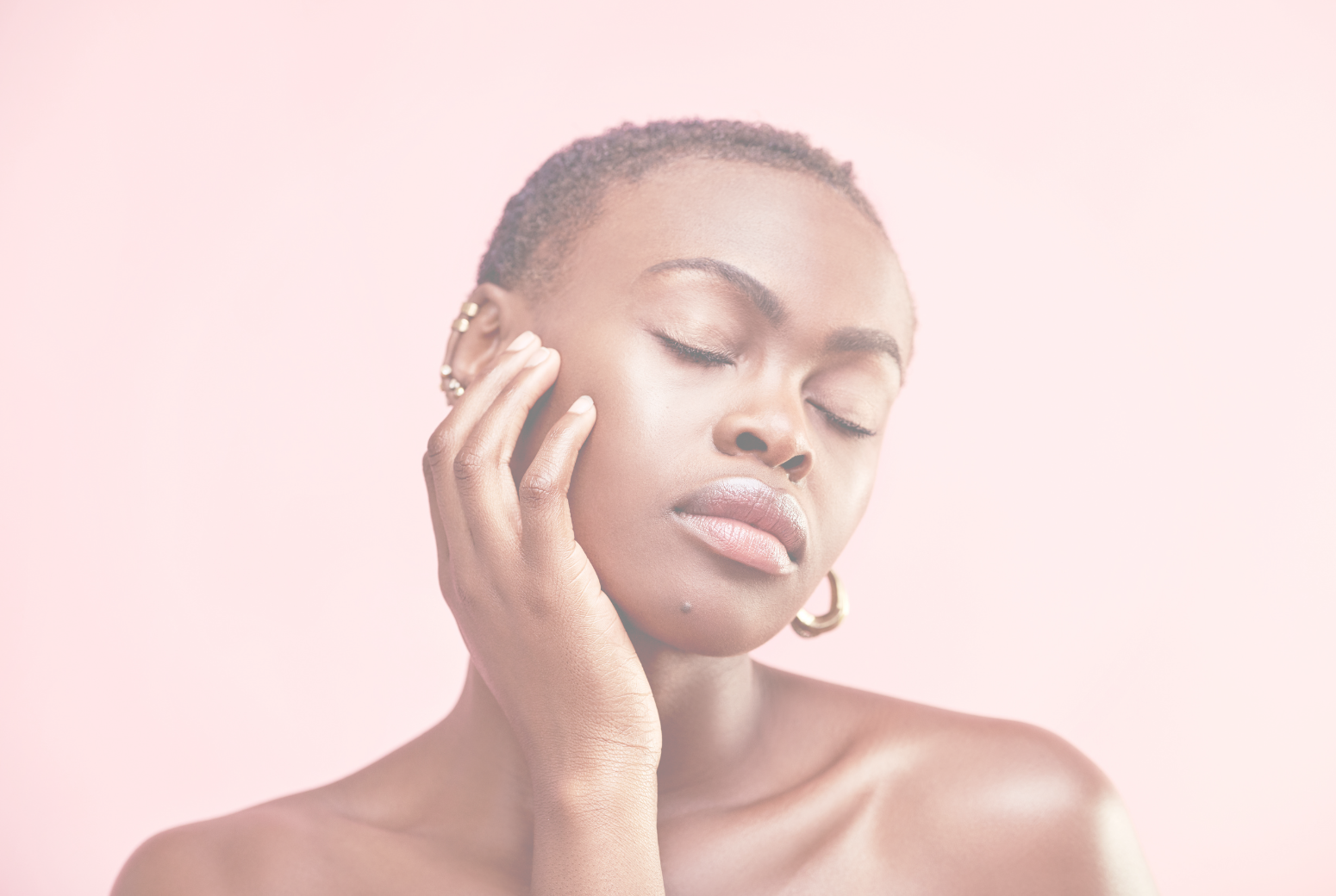Acne-safe makeup is crucial for anyone who is prone to this skin condition.
Makeup is often viewed as a double-edged sword for people with acne-prone skin. While the right makeup can help boost confidence by camouflaging breakouts, the wrong formulas can clog pores, exacerbate inflammation, and hinder the skin’s ability to heal. The good news is that when chosen correctly, makeup can be an essential tool to increase confidence, camouflage breakouts, and support healthy skin.
As a licensed esthetician and former makeup artist who specialized in camouflage techniques, I’ve worked with countless clients who’ve struggled with balancing their love for makeup with their acne challenges. Having seen firsthand how poor cosmetic choices can worsen breakouts, I’m passionate about educating people on how to select and apply truly acne-safe makeup, focusing on products that allow for coverage and breathability without compromising skin clarity.
This simple guide breaks down the science behind acne-safe makeup, explains how to use it effectively for great coverage, and provides expert tips for choosing cosmetics that enhance rather than hinder skin clearing.
The Science Behind Acne-Safe Makeup
Acne-safe makeup is formulated to be non-comedogenic, meaning in theory, it shouldn’t clog pores. However, many products on the market that claim to be non-comedogenic still contain pore-clogging ingredients. Understanding the role of ingredients is imperative when selecting makeup for acne-prone skin.
3 Ingredients that Worsen Acne
Certain ingredients trigger acne by clogging pores, increasing oil production, reducing cellular respiration, or causing irritation. Here’s a list of some of the biggest offenders:
- Coconut oil & isopropyl myristate–Highly comedogenic and known to block pores leading to an increase in c.acnes bacteria.
- Silicones (like dimethicone)–While they feel lovely and create a smooth finish, silicones can trap sebum and bacteria, worsening breakout severity.
- Fragrance & alcohol–Common irritants that cause inflammation and disrupt the barrier, making acne-prone skin more sensitive and reactive thus reducing penetration of active ingredients into the follicles.
4 Ingredients That Benefit Acne-prone Skin
On a brighter note, some makeup formulations contain active ingredients that actually support acne clearing and help prevent new breakouts from surfacing.
- Zinc oxide–A natural anti-inflammatory agent that reduces redness, helps protect against UV skin damage, and aids in controlling sebum.
- Niacinamide (Vitamin B3)–Clinically proven to help regulate sebum production, strengthen the skin barrier, and reduce inflammation.
- Salicylic acid–A highly effective beta hydroxy acid that penetrates deep into the pores, helping to dissolve excess sebum and prevent pore clogging.
- Hyaluronic acid–A lightweight hydrator that binds moisture to the skin preventing an overproduction of sebum due to dehydration, a very common issue in acne-prone skin.
Choosing makeup infused with these beneficial ingredients can help maintain clear skin while providing healthy coverage during the clearing phase(s).

February 2025 L+A Report
Medi-Beauty Trends for 2025
Beauty trends for your practice from laser treatments to tinted primers!
2025 is about re-imagining beauty! We beg of you to let go of conventional thinking because – there’s nothing conventional about the treatment options available today!
Please join us —– over here —- outside of that box!
7 Pro Tips for Camouflaging Acne with Acne-Safe Makeup
As someone who spent years as a professional makeup artist, I learned that covering acne is all about strategy, not layers upon layers of heavy foundation. My goal was always to neutralize pigmentary irregularities, smooth out uneven texture, and set makeup in a way that enhances longevity without suffocating the skin and compromising acne clearing.
- Start with an acne-safe primer to create a smooth base without having to apply multiple layers of cosmetics to achieve a smooth appearance.
- Use a lightweight, buildable foundation rather than full-coverage formulas that can emphasize texture. Use an acne-safe concealer and spot treat in areas where more coverage is needed.
- Neutralize redness and discoloration with a green-tinted concealer before applying foundation to avoid over-layering of cosmetics.
- Blend makeup in with a slightly damp sponge and gently press product into the skin to build coverage and create a smooth finish.
- If not a lot of coverage is needed, spot conceal with precision rather than applying a thick layer over the entire face.
- Set with a finely milled mineral powder to absorb excess sebum without clogging pores.
Using this approach ensures natural-looking coverage that enhances one’s complexion rather than masking it under heavy layers of makeup.
Can Makeup Actually Help Acne?
Contrary to popular belief, some makeup products can actually support skin healing rather than just covering blemishes. Formulations that contain acne-fighting ingredients can actively reduce inflammation, control oil production, help control overproduction of c.acnes bacteria and protect against environmental stressors.

Contribution by Stephanie Criscione
For over 25 years, Stephanie Criscione has dedicated her career to one mission: helping clients achieve healthier skin and greater confidence. As a licensed esthetician, certified functional medicine health coach, medical esthetician, and makeup artist specializing in camouflage techniques, she brings a holistic, results-driven approach to that merges advanced esthetics with whole-body wellness.
As a practicing esthetician and small business owner, she developed and administered tailored esthetics treatments based on a deep understanding of the chemistry and biological underpinnings of healthy skin. A lifelong learner, it was a natural evolution to harness her passion as an educator at San Francisco Institute of Esthetics and Cosmetology (SFIEC) where she developed an advanced esthetics curriculum and trained hundreds of new estheticians in esthetic techniques and sales prowess. She has since worked in results-driven locations like SenSpa and Skin MedSpa.
Stephanie Criscione is the Director of Education and Clinic at Face Reality Skincare.
3 Examples of Acne-Safe Makeup That Benefits the Skin
- Tinted SPF with zinc oxide–Provides excellent sun protection while helping to calm inflammation and reduce post-inflammatory hyperpigmentation.
- Concealers with niacinamide or salicylic acid–Offer phenomenal coverage while helping to control excess sebum and prevent pore clogging.
- Oil-free, non-comedogenic foundations–Provide breathable coverage that won’t disrupt skin health or increase c.acnes bacteria.
Incorporating dual-purpose makeup that treats and conceals simultaneously can be a game-changer for those with acne!
Top 5 Tips For Acne-prone Makeup Users
- Check product labels carefully–Remember that not all “non-comedogenic” claims are accurate; always check, and cross check ingredients.
- Choose mineral-based formulas–Zinc oxide and titanium dioxide are gentle, non-irritating options.
- Avoid heavy, oil-based products–Stick to breathable, lightweight formulations.
- Clean brushes and sponges regularly–Wash tools at least once a week (ideally, daily) to prevent makeup and bacterial buildup.
- Always remove makeup before bed–Use a foaming, non-comedogenic cleanser to effectively remove makeup will prime the skin for maximum penetration of active products. Trust me, not washing your face before bedtime ensures you’re taking a lot more to bed with you than your favorite teddy bear!
Final Thoughts
Makeup and acne don’t have to be at odds! With the right cosmetic choices and application techniques, it is possible to achieve a smooth, even complexion without exacerbating breakouts. By opting for acne-safe ingredients, maintaining a strategic makeup routine, and prioritizing skin health, makeup can become an empowering tool rather than a source of frustration and pore-clogging.
As both an esthetician and former makeup artist, I have seen firsthand how acne-safe makeup can transform confidence while supporting the skin’s natural healing process. With the right knowledge and approach, you can enjoy makeup without compromising your journey to clear skin.
